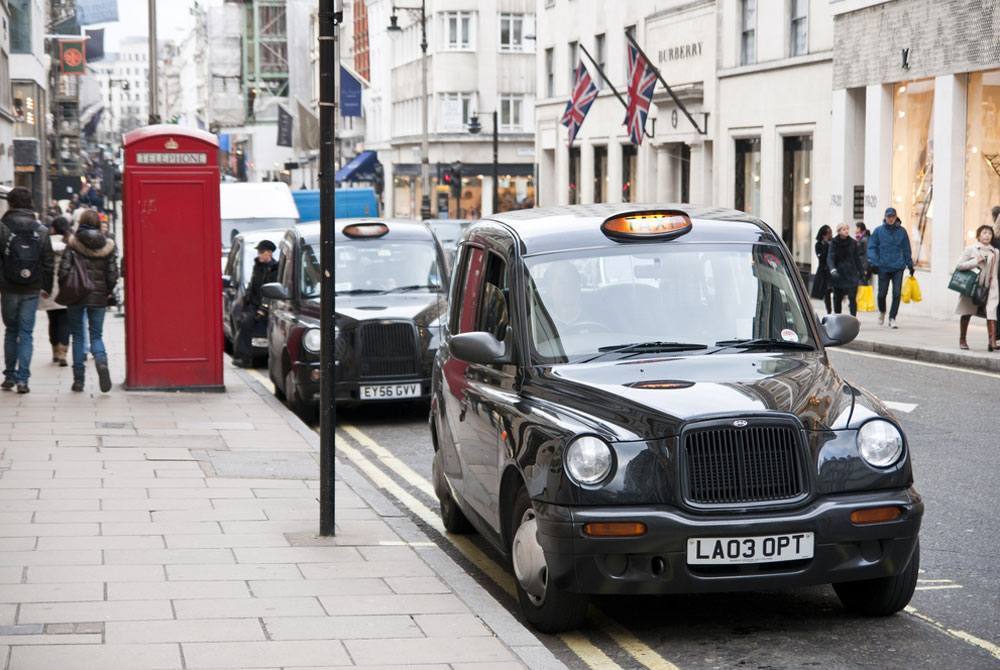Cabbies' Brains Have More 'Navigation' Gray Matter

If you want to know the quickest route to a restaurant or hotel, a taxi driver may be your best bet. And new research suggests their savvy skills are imprinted in their brains.
Turns out, the intensive training required of London taxi driver candidates may alter the drivers' brains, changing the part of the brain in charge of memory and spatial navigation, the new study suggests.
The training is known as "the knowledge" and includes memorizing 25,000 London streets and their complicated layouts, as well as 20,000 landmarks. After learning "the knowledge," trainees must take a series of exams, with only about half of the candidates ultimately passing.
Researchers conducted memory tests and took brain scans using magnetic resonance imaging of 79 male trainee London taxi drivers at the start of their training. They took follow-up MRI images three to four years later, just after the drivers' final qualification exams. The researchers also took MRI brain scans of 31 male participants who didn't undergo training and who served as controls.
At the beginning of the study, the participants showed no differences in either brain structure or memory. Three to four years later, however, the researchers found an increase in gray matter in the posterior hippocampi, or the back part of the hippocampus, among the 39 trainees who ultimately qualified as taxi drivers. This change was not observed in the non-taxi drivers or trainees who had failed the exams.
"The human brain remains 'plastic' even in adult life, allowing it to adapt when we learn new tasks," study researcher Eleanor Maguire of University College London said in a statement. "By following the trainee taxi drivers over time as they acquired — or failed to acquire — 'the knowledge,' we have seen directly and within individuals how the structure of the hippocampus can change with external stimulation."
Qualified taxi drivers showed better memory performance for London-based information during the follow-up testing than controls or those who failed the test; however, they displayed "surprisingly poorer learning and memory for certain types of new visual information," compared with controls, the researchers write online today (Dec. 8) in the journal Current Biology, "suggesting there might be a price to pay for the acquisition of their spatial knowledge."
Get the world’s most fascinating discoveries delivered straight to your inbox.
The qualified taxi drivers' poorer performance when it came to retaining certain visual information may be linked to reduced anterior hippocampal volume that compensated for the development of more gray matter volume in their posterior hippocampi, according to the study authors.
Because the study results suggest that the brains of the qualified taxi drivers changed to accommodate the knowledge of London's streets, the findings may be used in future programs for lifelong learning and rehabilitation after brain injury, the researchers said.
Even so, the researchers can't be sure that an underlying biological mechanism didn't give these successful taxi drivers more plastic brains, for instance. "What is not clear is whether those trainees who became fully-fledged taxi drivers had some biological advantage over those who failed. Could it be, for example, that they have a genetic predisposition towards having a more adaptable, 'plastic' brain?" Maguire said. "In other words, the perennial question of 'nature versus nurture' is still open."
As for how the results would hold up in the United States, the jury is out, as the "training" is not the same. In the U.S., the preparation requirements for taxi drivers differ from state to state, with local taxi commissions setting licensing standards for driving experience and training. For example, the New York City Taxi and Limousine Commission (TLC) requires that a person applying to become a licensed taxi driver must have a valid Department of Motor Vehicles chauffeur's license (which involves a short written exam on taxi-specific driving laws) issued by the state of New York, New Jersey, Connecticut or Pennsylvania. The TLC also requires that applicants pass a drug test, have a social security card, be at least 19 years old and have no outstanding parking violations.
You can follow LiveScience writer Remy Melina on Twitter @remymelina. Follow LiveScience for the latest in science news and discoveries on Twitter @livescience and on Facebook.
 Live Science Plus
Live Science Plus





